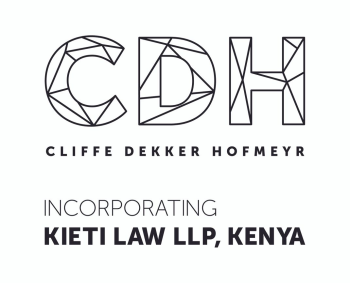On July 19 2017, the National Treasury published the Draft Taxation Laws Amendment Bill 2017. The bill proposes to clarify the tax implications that arise when a person assumes contingent liabilities under the corporate reorganisation rules contained in Sections 41 to 47 of the Income Tax Act (58/1962).
The South African Revenue Service (SARS) had previously issued Interpretation Note 94 dated December 19 2016, which addressed the tax implications of contingent liabilities assumed in the acquisition of a going concern. In Paragraph 3 of the interpretation note, SARS explained its understanding of a 'contingent liability' as follows:
"A contingent liability means an obligation whose existence will be confirmed only by the occurrence or non-occurrence of one or more uncertain future events and, if confirmed, will result in expenditure being incurred to settle the confirmed obligation."
To explain the concept of a contingent liability, SARS used the example of a provision for bonuses that employees will receive if they are still employed by the employer on a specific date. In this instance, the interpretation note stated that:
- there is a distinct obligation to pay the bonus under specific circumstances;
- existence of the liability can be confirmed only on a specific date; and
- to the extent that it is confirmed, costs will be incurred in order to settle it.
The interpretation note focused on the treatment of free-standing contingent liabilities, which are independent of the assets disposed of, in the hands of both a seller and purchaser when a business is transferred as a going concern. Examples of free-standing contingent liabilities include warranty claims and employee-related provisions such as bonus provisions, leave pay and post-retirement medical aid provisions.
In terms of Section 42 of the act (asset-for-share transactions) and Section 44 of the act (amalgamation transactions), a person may dispose of assets to a resident company in exchange for the issue of equity shares or the assumption of debt. The debt must have been incurred more than 18 months before disposal of the assets. If the debt was incurred less than 18 months before the disposal, the debt must, for example, have constituted the refinancing of a debt incurred more than 18 months before the disposal, or have been attributable to and have arisen in the ordinary course of a business undertaking that was disposed of as a going concern.
In the context of the transfer of a going concern, the interpretation note stated that SARS accepts that 'debt' as used in Section 42(8)(b) of the act includes free-standing contingent liabilities. The note also stated that Section 42(8)(b) specifically deals with the transfer of a business as a going concern, and that the legislature clearly envisaged that such a transfer would include the assumption of free-standing contingent liabilities as other consideration. Similarly, it stated that SARS accepts that 'debt', in the context of Section 44(4)(b)(i)(bb)(B), will be interpreted as including free-standing contingent liabilities which are assumed as other consideration for assets acquired as part of the acquisition of a going concern.
However, the Explanatory Memorandum on the Draft Taxation Laws Amendment Bill 2017, published with the bill, states that the concept of debt as contemplated under the corporate reorganisation rules refers to a real and existing obligation to pay another party, and that the other party must have a legal right to collect or receive the payment. It is therefore proposed to expand on this concept of debt for the purposes of the corporate reorganisation rules. The proposal is to insert a new definition in Section 41 of the act, expressly stating that debt for the purposes of the Corporate Reorganisation Rules includes contingent debt. This will clarify the position.
According to the 2017 memorandum, all restrictions that apply to debt for the purposes of the corporate reorganisation rules (eg, the 18-month rule) will also apply to contingent debt.
It is proposed that the amendment come into effect on the date of the bill's promulgation.
For further information on this topic please contact Mareli Treurnicht at Cliffe Dekker Hofmeyr by telephone (+27 11 562 1000) or email ([email protected]). The Cliffe Dekker Hofmeyr website can be accessed at www.cliffedekkerhofmeyr.com.
This article was first published by the International Law Office, a premium online legal update service for major companies and law firms worldwide. Register for a free subscription.



